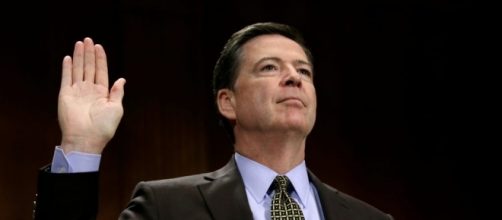Congressional leaders announced on Wednesday that they expect former FBI Director James Comey to testify next week about conversations he had with President Trump, who reportedly tried to talk James Comey out of conducting investigations on his aides. Comey had reportedly collected memos which detail such conversations and -- as Blasting News put it -- left a "paper trail" that would create a lot of problems for the Trump administration.
James Comey's hearing
In the first several months of Donald Trump's presidency, the President began to reveal a pattern where he would fire, silence, or somehow try to block the investigation being conducted on him over his possible connections to Russian officials.
The New York Times seemed to feel that the Comey hearing could be testing the White House as to how they will react. They suggest that with Comey's hearing, the Trump administration could invoke executive privilege to prevent the former FBI Director from talking.
James Comey is expected to testify before the Senate, but President Trump could try to block him https://t.co/aQ5wIhB6Y7
— The New York Times (@nytimes) June 1, 2017
Blasting News reported on the controversies surrounding the chairman of the House Intelligence Committee, Devin Nunes, before he temporarily removed himself from anything related to the investigation. One of them being that another government official who was among the first to be fired by the Trump administration, Sally Yates, said that she wanted to testify in an open setting.
But through some issues that were related to executive privilege, Devin Nunes appeared to respond on behalf of the White House and canceled Yates' testimony. After Nunes temporarily stepped aside, the House Intelligence Committee rescheduled the hearing with Yates.
Trump won't suffer real consequences using executive privilege
The Times also asked a White House spokeswoman about blocking Comey's hearing, to which they had no comment, but the "seeds of suggestion" (at the very least) might have been planted by the question, in case the White House is looking for ideas as to what they could do. They also questioned Mark J. Rozell, who is the author of a book on the history of executive privilege.
He said that it would obviously give the appearance that the administration has something to hide.
But the Trump administration has already shown that it cares very little about the optics of their decisions where many feel that the administration is doing everything wrong in plain sight. While the Senate Intelligence Committee has asked for the memos that Comey had reportedly kept, because of Mueller's involvement, the FBI refused and told them to take Comey's offer to testify instead. Of course, if the administration decides to block it, the only repercussions so far would be how it would look.


